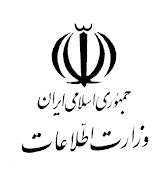Like Kashmir Singh and Kishori Lal Sharma, Mohanlal Bhaskar was circumcised in 1965 and sent as a spy and an espionage agent in Pakistan. After spending 14 years in Jail, Bhaskar penned his experience on ‘spying’ in a book titled ‘An Indian spy in Pakistan’..
In his preface, Khushwant Singh had said, "Not all the wealth of the world would persuade me to undergo what Mohanlal Bhaskar had to go through in the jails of Lahore, Kot Lakhpat, Mianwali and Multan. It is a miracle that after all that he lives to tell his tale, retain his sanity and teach in a school"
Bhaskar was on a mission to find out information about Pakistan’s nuclear bombs. Betrayed by one of his colleagues — a double agent who was also subsequently arrested and had to face his own demons. (a lack of training?)
He was condemned to prison and torture in an alien country where he was to spend 14 years of his life (There might be many more in Pak jail). Perhaps he would not have been allowed to emerge alive. His salvation came when he was exchanged for Pakistani spies held by India.
Bhaskar got initiated into the profession of espionage when, fired with patriotism in 1965, he quoted the following lines in a speech on Bhagat Singh: "We have eaten the grain cultivated with your blood, It has nurtured the seeds of martyrdom in us"
While many audience applauded vociferously, one man questioned his sentiments to which Bhaskar had responded, "If it’s a question of serving my country I will not be found wanting. I’m prepared to serve with my life and soul in whatever capacity you want me" And so silently that not even his family got to know of it, Bhaskar "quietly underwent circumcision and became a Muslim convert. Even my wife was not aware of this momentous fact" (Undergoing a small surgery is mandatory for al secret agents assigned to Pak)
Bhaskar had detailed the torture that Bhaskar and other prisoners had to undergo at the hands of the Pakistani police and army. However, these accounts of inhuman torture are interspersed with descriptions of the many interesting people that Bhaskar came across in the Pakistani jails. People who were sadistic and cruel and people who showed unexpected kindness.
For example he wrote of Havaldar Abdul Rahman Khatak "who even in prison had helped me to keep up my morale his love and affection were like a fountain a desert which sprays cool, life giving water there was no hatred for me in his heart when I think of him my head is bowed in gratitude."
Another fact that Bhaskar brings to light time and again is the shared lineage and heritage of the people of the two warring nations. Raja Gul Anar Khan, who was considered to be "a living terror" traced his history back to Chandravanshi Rajputana while certain others had Sikhs as their forefathers but in turbulent times converted to Islam either by choice or necessity.
There are hair-raising descriptions of torture that were perpetuated upon the prisoners of war and spies in Pakistani prisons. "Torture is torture and it knows no limit. If one is hell bent upon torturing someone one can devise a hundred and one ways of doing so". From beatings and lashings to making the prisoners walk non-stop the whole night to injections of morphine all these accounts and more are there to chill the readers’ heart.
Bhaskar has drawn pen pictures of the many people whom he came across during his years in the Pakistani jails. There are accounts of Subedar Sher Khan, the Pathan who looked like Gregory Peck and who would have Bhaskar beaten up with sticks and chains without any rhyme or reason. Then there is Professor Shehzad Jalandhari, a "romantic soul" who had taken a fancy to the young son of a colonel and whose abusive behavior finally got him 14 years of rigorous imprisonment.
Question.
Why all spies cry of an ignorant attitude by their own government?
Should a spy ensure all aids from government to his family before heading for assignment?
(Bhaskar had published his book in Hindi. t was was translated in English by Jai Rattan. Shrishti. Pages 329 Rs 295)
9 years ago
























No comments:
Post a Comment